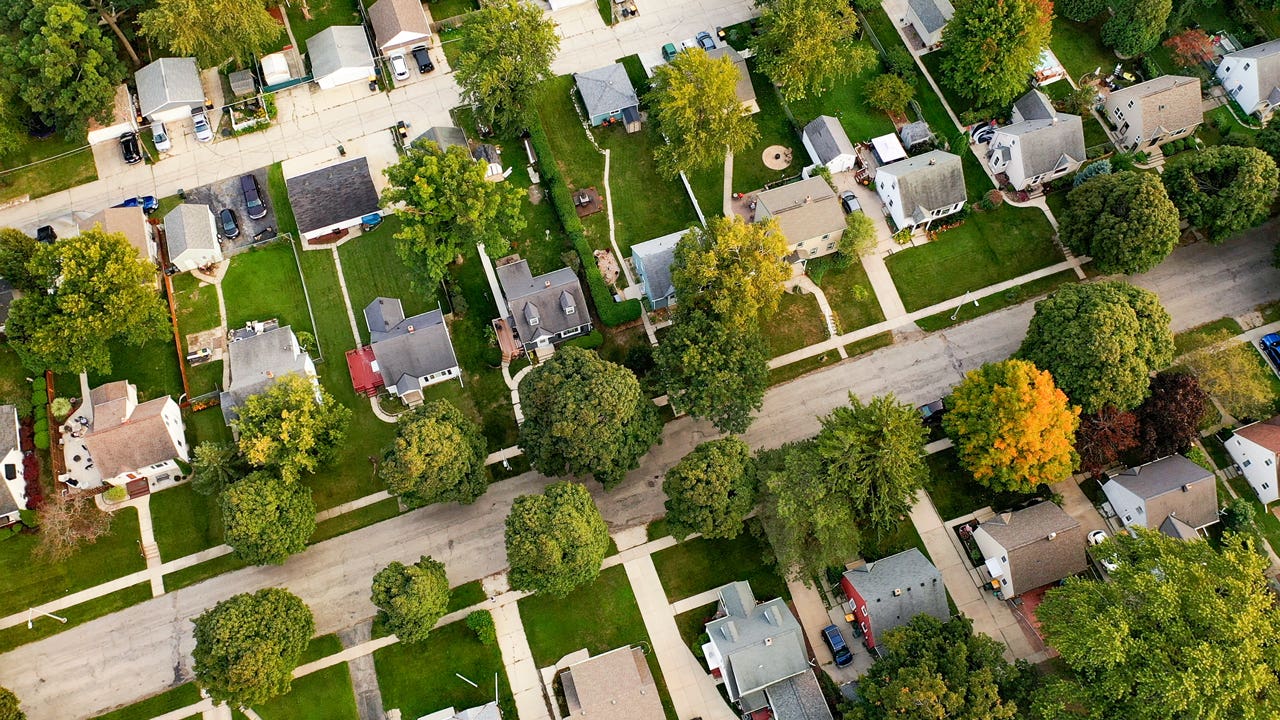How much house can I afford if I make $75,000 a year?

Key takeaways
- An annual salary of $75,000 is less than the median household income, which means you may face some challenges in finding a home that fits your budget in today’s challenging housing market.
- A lender won’t just focus on how much you make — the company will take a close look at how much you’re spending on other essentials such as your car payment, student loans and any other outstanding debt to determine your ability to handle a mortgage payment.
- Since $75,000 a year is on the lower end of the earning spectrum, take a look at local down payment assistance programs to determine if you may be eligible for some help as a homebuyer.
If you’re earning $75,000 each year, you might feel like you’re struggling to keep up with your neighbors. The median household income is $83,730, according to data from the U.S. Census Bureau, which puts you at a nearly $9,000 disadvantage. And if you’re trying to buy a home, you’re really going to feel the pain: Bankrate’s Home Affordability Report found that you need nearly $117,000 to purchase a median-priced home in the U.S.
So, should you just give up on trying to buy a home if you make $75,000 a year? Not so fast. There are ways to make it happen. Read on to learn about what factors determine your homebuying potential, how a lender will evaluate your finances and where you might be able to get some assistance with the purchase.
Start with the 28/36 rule
Historically, the 28/36 rule has been a guideline that many lenders use to help understand a borrower’s ability to repay a mortgage and other debts. The rule advises spending no more than 28 percent of your income on housing expenses, and no more than 36 percent of your income on total debt payments, including housing.
If you’re making $75,000 each year, your monthly earnings come out to $6,250. To meet the 28 piece of the 28/36 rule, that means your monthly mortgage payment should not exceed $1,750. And for the 36 part, your total monthly debts should not come to more than $2,250.
Of course, buying a home is more complicated than just following a simple rule. Bankrate’s new-home calculator can help you crunch all the numbers to get a deeper, more detailed understanding of how much house you can comfortably afford.
What factors determine how much you can afford?
Obviously your salary is the number one factor in what you can spend on a home. But the amount you can afford is dependent on the rest of your debt as well, including things like car payments and student loans. Here are some other important factors that can have an impact:
Credit score
Your credit score is a reflection of your risks as a borrower. Any lender will look at this number to understand your track record of paying back other debts, which helps them assess your potential for defaulting on the loan. Conventional loans typically require a minimum credit score of 620, but a significantly higher score can help you qualify for significantly lower rates.
“Improving your credit score can make a big difference to monthly payments,” says Libby Cooper, vice president and general manager of new construction for Zillow Mortgages. “For example, a borrower with an ‘excellent’ credit score — between 740 and 850 — can potentially qualify for a 30-year fixed-rate mortgage with an interest rate upward of 1.5 percentage points better than someone with a ‘fair’ credit score — between 620 and 639.”
Down payment
How much of that $75,000 annual salary have you managed to keep in your savings account? Making a bigger down payment lowers the amount of money you need to borrow, thereby shrinking your monthly mortgage payments. For example, consider this breakdown from Bankrate’s mortgage calculator to see how different down payment amounts on a $320,000 home, assuming a 7 percent interest rate, would impact monthly mortgage payments:
| Down payment | Monthly mortgage payment |
|---|---|
| $64,000 (20 percent) | $1,703 |
| $32,000 (10 percent) | $1,916 |
| $9,600 (3 percent) | $2,065 |
With your $75K salary, the 28 percent rule means not spending more than $1,750 per month on housing. So if you don’t want to overextend yourself, you would need to put down 20 percent — or find a cheaper home. (Note that this example does not include other common costs of homeownership, like property taxes and homeowners insurance, which can add a substantial amount of money to that total.)
Loan-to-value ratio
Your loan-to-value ratio (LTV) plays an important role in determining your buying power as well. Lenders like to see a 20 percent down payment for an 80/20 LTV. Smaller down payments will trigger an automatic mortgage insurance premium, meaning you’ll need to budget for another expense: private mortgage insurance.
Debt-to-income ratio
In addition to mortgage debt, you likely have other debt as well, like student loans, car payments and credit cards. Lenders will evaluate your overall debt-to-income (DTI) ratio (that’s ultimately what the 36 in the 28/36 rule refers to) to make sure you aren’t stretching your finances too thin as you attempt to pay off all your loans.
“While most mortgage products will allow up to 40 to 50 percent DTI, it is more favorable to be in the 20 percent range,” says Eileen Derks, senior vice president and head of mortgage at Laurel Road. “This will minimize risk of repayment should unexpected expenses arise or a significant interest rate increase occur on variable-rate credit products. It is best to live within our means and anticipate [that] unexpected expenses will almost always occur over the life of a mortgage loan.”
Location
Where you’re looking to live will play a major role in determining if you can afford to buy a home on a $75,000-per-year salary. While you’ll likely be out of luck if you’re hoping to live in some of the highest-priced markets such as Los Angeles, Boston or Seattle, Redfin’s latest figures show that there are three major metro areas where buyers can afford a median-priced home on $75,000 or less:
- Cleveland, Ohio
- Detroit, Michigan
- Pittsburgh, Pennsylvania
Cities, of course, aren’t the only options for purchasing a home. If you’re looking in a more rural area, you may be in good shape with your $75,000 salary. Do your research to get a sense of the local market.
Learn more: Should I buy a house now, or wait?
Know your mortgage options
Fixed-rate, adjustable-rate, conventional, FHA, VA — there are loads of different financing options for buying a home. The best way to figure out how much you can borrow is to get preapproved for a mortgage. A mortgage expert can listen to your needs, review your financial information (pay stubs, tax returns, credit report, etc.) and give you a firm estimate of your buying power. The amount you’re preapproved for indicates the amount the lender is likely to eventually approve you for officially.
Once you find a home and are ready to finalize your mortgage loan, shop around. (You can go with the same lender that preapproved you, but you’re not obligated to.) The interest rate is the biggest headline you’ll notice when looking at different loans, but there are a number of other puzzle pieces that need to fit into place as well. What fees does each lender charge? Will you need to buy mortgage points to qualify for a lower rate? Do certain lenders offer benefits that others don’t?
First-time homebuyer programs and other assistance
If this maze of mathematics has you feeling overwhelmed, ask yourself these questions to see if you qualify for some help with the purchase.
-
Are you a first-time homebuyer? “First time” can be deceiving; many states consider a first-time homebuyer someone who hasn’t owned a property within the last three years. There are a number of assistance options specifically designed for those people, too, both on the federal and local level.
-
Does your salary put you in a position for down payment help? There are many down payment assistance programs out there as well. Depending on where you live and the size of your family, your $75,000 annual earnings may actually help you qualify as a low- or moderate-income borrower — a distinction that can put you in the running for low-cost loans and grants for down payment and closing costs.
- Can your job help you qualify for other programs? You might be able to qualify for even better borrowing terms, depending on what you do for a living. For example, teachers, law enforcement officers, EMTs and firefighters are all eligible for the Department of Housing and Urban Development’s Good Neighbor Next Door program. If you fall into one of those categories, you might be able to buy a home for a very significant discount.
FAQs
Why we ask for feedback Your feedback helps us improve our content and services. It takes less than a minute to complete.
Your responses are anonymous and will only be used for improving our website.







